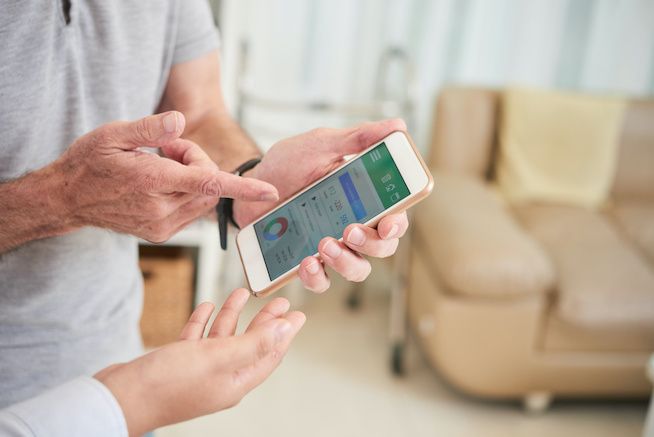Smartphone users track their activity for longer than those using fitness devices
Those using a smartphone to track their daily steps, are more likely to continue to monitor their exercise routine, than if they're using a fitness device instead. That's the findings of a six-month study coming out the Penn Medicine, the medical school at the University of Pennsylvania.
Patients who sent activity reports to doctors after they were discharged were 32 percent more likely to continue this routine if they used the activity monitor or app that was embedded on their smartphone, rather than a wearable like a fitness tracker.
The data comes from a new study from Penn Medicine, which was first reported by the Penn Medicine News, and just published on the JAMA Network.
Apple Watch Series 5 (GPS, 40mm) - Space Gray Aluminum Case with Black Sport Band
Researchers followed 500 patients, asking them to track their steps after they were released from the hospital. Half of the patients were assigned and told to use a wearable device, while half were assigned and asked to track their steps on an app on their phone.
After the first month of tracking, 87 percent of those using their own smartphone were still reporting back to researchers, and 82 percent of those using fitness wearables also continued to send in their step counts. But after six months, the differences between the two groups were more noticeable. Then, 61 percent of smartphone users were still sending in activity reports compared to just 47 percent of those using fitness devices. Researchers tabulated those findings as a 32 percent increase in reporting between those who used a smartphone as compared to those who used a wearable.
Patients tracked their steps using the Withings Health-Mate app on their smartphone, or using the Withings Steel wearable, according to the published study. They were also $50 once they enrolled in the study, and then were given an additional $50 if they stuck through the entire six months. Those who were placed in the smartphone group also got a free Withings Steel if they finished the trial as well.
Other smartphone apps, including Apple's Health app, are able to collect step counts as well, even if people aren't actively checking daily. About 81 percent of people in the U.S. own a smartphone today, as compared to just 21 percent of U.S. adults who regularly done a fitness wearable, according to the Pew Research Center.
As more people own and use smartphones in their daily lives than wearables like fitness trackers and smartwatches, the likelihood of them tracking their steps and other fitness activities with a smartphone tends to be higher, said researchers.
"Most people with smartphones take them everywhere they go," said Mitesh Patel to Penn Medicine News, the lead author of the study, the director of the Penn Medicine Nudge Unit, and an assistant professor of Medicine. "Since carrying the phone is already a built-in habit, it makes it much easier to use the device to track activity levels."
Withings Steel HR Hybrid Smartwatch - Activity, Sleep, Fitness and Heart Rate Tracker with Connected GPS
